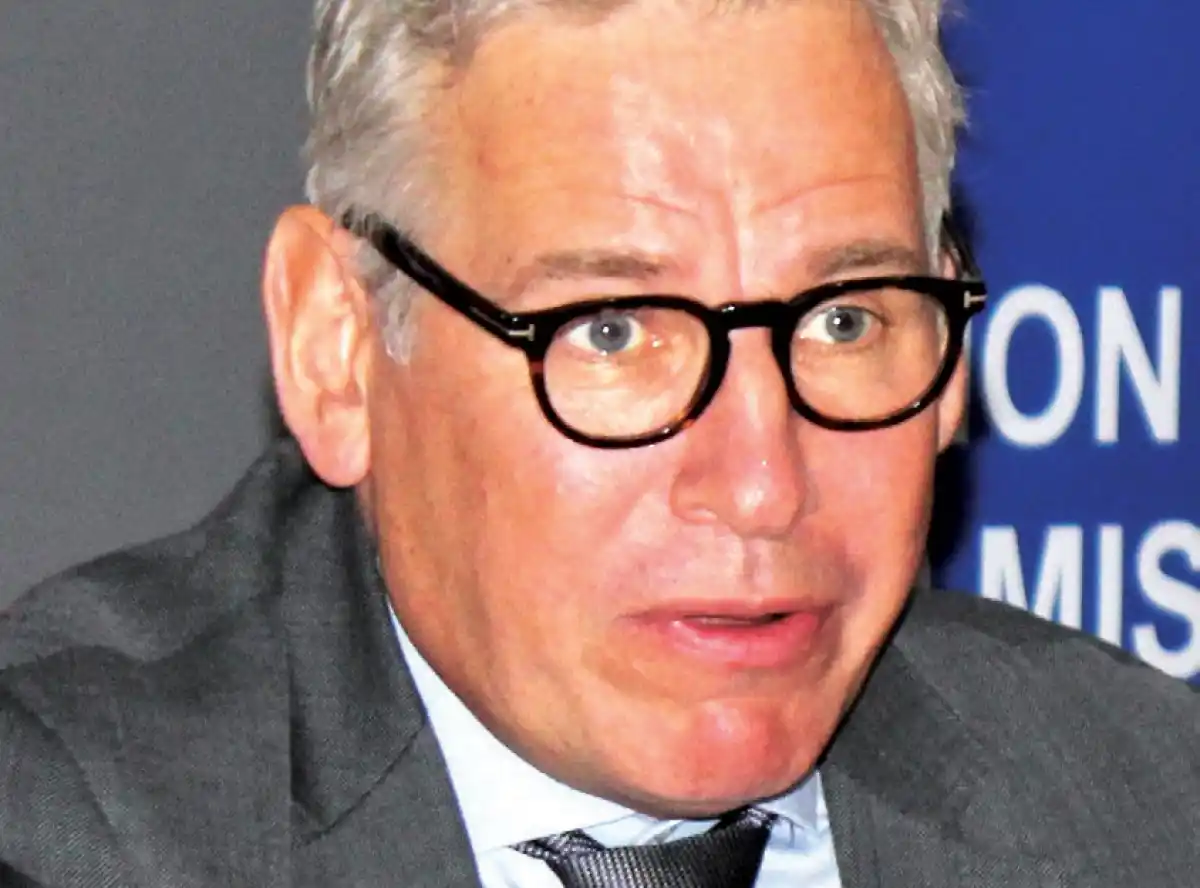
The European Union Ambassador feels for Malawians as life gets harder with the economy tumbling on all key indicators and he wonders whether solutions can be found as Malawi heads to the elections. But the government insists it is fixing the situation
The European Union (EU) Ambassador to Malawi, Rune Skinnebach, has expressed concerns over the worsening economic difficulties Malawians are facing.
Skinnebach’s remarks come a week before Minister of Finance presents a national budget, probably one of the most anticipated budget presentation in recent years as Malawians hope it could carry solutions to the raft of economic challenges they are grappling with.
Speaking to Malawi News in an exclusive interview, Skinnebach said Malawi is at a crucial point—just like the rest of the world – that requires tough decisions to stop the country’s economy from sliding further.
“Life is getting harder, and the country is facing serious challenges,” he said.
Malawians are grappling with impact of a wreckage of an economy that is characterised by runaway inflation, struggling businesses and chronic shortage of forex.
According to Skinnebach, the foreign exchange crisis is one of Malawi’s biggest economic problems today.
He added that climate-related disasters have added to the weight of the problem, making life even more difficult for many Malawians.
Against all these challenges and while key economic indicators show a worrying trend, getting help from the international community is becoming harder.
He called for strict financial discipline, better revenue collection and urgent debt restructuring to stabilise the economy.
“With elections approaching, the big question is how Malawi will handle these tough times.
“Many are waiting for the upcoming national budget to see what direction the government will take,” he said.
Economists have also shared Skinnebach’s concerns in separate interviews.
Marvin Banda said as global economic conditions become more difficult and with foreign governments increasingly looking inward, developing countries like Malawi that are dependent on aid are in for the toughest of the times.
“As nationalism grows worldwide, international financial support is shrinking. Skinnebach is absolutely right that we face really tough times,” Banda said.
According to him, Malawi’s economy is being artificially supported such that while some indicators may seem stable now, it is only a matter of time before the situation worsens for the people.

Another economist, Velli Nyirongo, also feared that Malawi could fall deeper into economic trouble.
“The government must make tough decisions, such as whether to devalue the kwacha or introduce policies that encourage local production and reduce reliance on imports,” Nyirongo said.
He said for ordinary Malawians, the forex crisis is more than just numbers—as it affects whether they can afford food, keep their jobs, or access medicine.
He said without urgent action, life will only get harder.
On forex, while the banks have maintained the exchange range at K1,751 to one US dollar, on the black market it is trading at more than K4, 000 to one dollar.
Prices of commodities are rising each passing day, with a 50 kg bag of maize now fetching K100,000 in most markets in the country. Maize is a staple food crop for Malawi.
Malawians are further exposed to high prices of farm inputs, with fertiliser going as high as K120,000 per 50 kg bag.
According to experts, in Malawi, food inflation is a key influence on the pricing of many other commodities.
In his response to these concerns, Minister of Finance Simplex Chithyola Banda admitted the tight spot in which Malawi finds itself.
But he said the government is putting up measures to fix the economic situation and improve the quality of life of people.
He said some of the challenges are caused by speculative economic theories that are causing panic.
“When I came in as Minister of Finance, I analysed and diagnosed Malawi’s economic challenges as forex, fuel, food and fertiliser. Today we are still grappling with the same challenges because as a country we are not producing enough to offset the trade balance.

“We are importing more than what we are exporting. We need to focus on production using the mega farms, mining also. Then our case will be different. That’s why even our yet-to-be-presented budget will be productivity-based,” he told Malawi News.
He said the government is focusing on productivity “so that we produce more and more for domestic and external markets so that we can generate more forex.”
According to Chithyola Banda, the government is working on both macro and microeconomics elements to stabilise the economy and get people to have access to disposable income to ease the living standards.
Chithyola Banda presents the budget on February.
That presentation will come two weeks after President Lazarus Chakwera presented the State of the Nation Address.
The address has attracted criticism from some quarters for being just an enumeration of what his government has achieved while conspicuously skipping how his government plans to tackle the prevailing economic crisis.






0 Comments